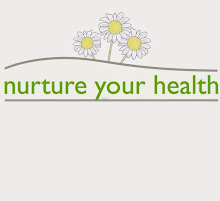Sunday, March 29, 2020
SIBO Pro Course tidbits!
Thursday, January 23, 2020
SNP Analysis Webinar Tidbits
 I attended a great SNP (single nucleotide polymorphism) Analysis Webinar last night presented by Penny Kendall-Reed ND. SNPs are single nucleotide (gene building blocks) differences in the structure of the gene that change the way that the gene expresses itself/works. Here is a summary of a few of the interesting tidbits:
I attended a great SNP (single nucleotide polymorphism) Analysis Webinar last night presented by Penny Kendall-Reed ND. SNPs are single nucleotide (gene building blocks) differences in the structure of the gene that change the way that the gene expresses itself/works. Here is a summary of a few of the interesting tidbits:- More than 170 of our genes' functioning is impacted by stress and some of the impacts include deceased wound healing, increased inflammation, increased weight gain, and decreased sleep quality
- TSH levels (which measure our thyroid health/function) can increase by up to 140% from morning to night and fluctuate throughout the day
- Estrogen can deactivate T3 (our active thyroid hormone), increase TSH levels, and falsely elevate T4 levels (our other thyroid hormone) - this impact is especially seen while on oral contraceptives (the birth control pill) or during the mid part of our cycle/ovulation
- TSH levels are higher in the winter/colder months and lower in the summer/warmer months
- Stress increases TSH levels and the production of auto immune mediated thyroid antibodies
- Our SNPs can help determine whether we are a good candidate for hormone replacement therapy (HRT) - the optimal SNP combination when taking HRT is genes that encourage the conversion of estrogen into the C2 form (the 'good' form/non carcinogenic form), that do not encourage the conversion of estrogen into the C4 form (the 'bad' form/ the carcinogenic form), and that encourage proper clearance of these estrogen breakdown forms through phase 2 liver detox pathways
- Increased stress and the resulting increased cortisol (stress hormone) production causes inflammation of melatonin receptors which prevents melatonin from binding and prevents us from getting into the deep sleep phase of our sleep cycle
Wednesday, January 1, 2020
Happy 2020!
 Happy 2020! 2020 marks 30 years since I graduated from high school and 20 years since I graduated from the Canadian College of Naturopathic Medicine! As of October this year, I will have been in practice since 20 years! Where has the time gone?!
Happy 2020! 2020 marks 30 years since I graduated from high school and 20 years since I graduated from the Canadian College of Naturopathic Medicine! As of October this year, I will have been in practice since 20 years! Where has the time gone?! I also started doing my yearly January cleanse in 2001, so 2020 marks my 20th cleanse! My regular day to day eating is pretty basic (no meat, no dairy, no eggs, no coffee, no alcohol, no refined sugar, limited gluten, limited processed foods) outside of dark chocolate and Friday night frozen pizza, but for January, I also leave out chocolate and any other sweets, gluten, soy, nightshade veggies (tomatoes, potatoes, peppers, eggplant), and all purchased pre-prepared food (like restaurant smoothies, restaurant meals, prepared hummus, bagged popcorn etc).
For me, my January cleanse is always a good way to enter the new year in a simple, quiet, and grounded in my body way. It serves as a good reset after the out of routine nature of the holiday season and I look forward to it each year.
My first meal for the 2020 cleanse is a smoothie (which is my regular breakfast even when not on a cleanse!)! I lost my taste for green smoothies in mid 2019, so my smoothie contains a green apple, frozen blueberries, frozen cherries, chia seeds, almond butter, coconut oil, and water. It always tastes delicious and, for me, feels like a perfect way to start the new decade!
Sending wishes for our new year and new decade to be filled with continued growth and learning and love and discovery!
Subscribe to:
Posts (Atom)

